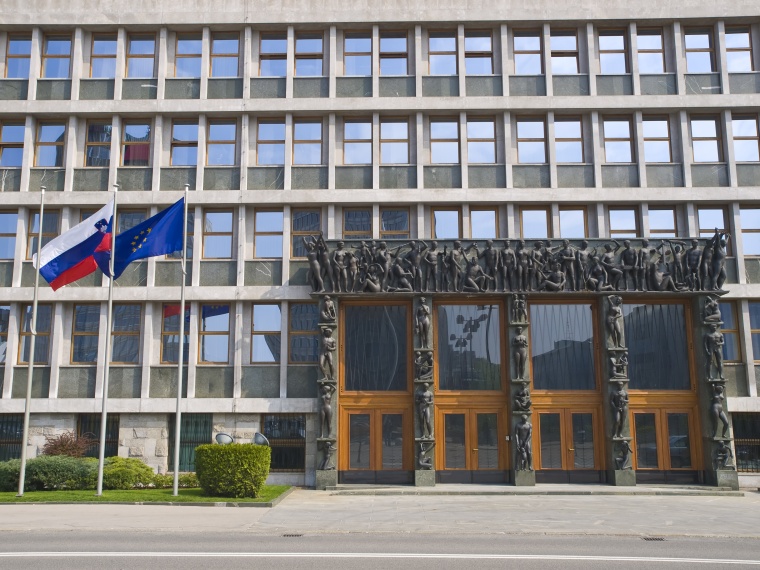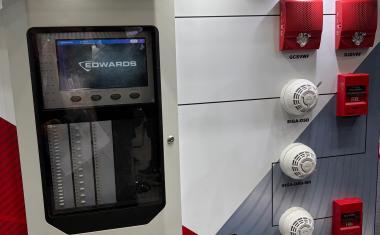Apollo protects the Slovenian Houses of Parliament
A new fire detection system based on Apollo technology has been chosen to protect the Slovenian Houses of Parliament, the home of the National Assembly and National Council. The co...

A new fire detection system based on Apollo technology has been chosen to protect the Slovenian Houses of Parliament, the home of the National Assembly and National Council. The contract for the fire detection system was awarded to Zarja Elektronika d.o.o., who have represented Apollo in Slovenia for over 20 years.
The parliamentary building, which was built in 1959, is located in the heart of the Slovenian capital city, Ljubljana. The building itself was designed by the architect Vinko Glanz. It includes a decorative main entrance that features symbolic, sculptural compositions depicting peaceful scenes from everyday life, focusing on industry and family. The premises include a seven-storey main building and three additional buildings, housing a total of approximately 500 staff. At the centre of the main building is the 422m2, 150-seat Great Hall, where the upper house convenes.
Bojan Kern, Development Engineer at Zarja Elektronika, says: "The client asked for full protection of their premises, which includes a number of buildings and covers a large area. In addition, the fire system had to preserve the architectural heritage of the building, as most rooms include decoration on the ceiling."
Fire detection systems meets EN54-14 standards
Zarja recommended an Apollo-based fire detection system to meet EN54-14 standards. The main building is protected by almost 500 XP95 detectors, which are controlled by an 11-loop Zarja Elektronika NJP 2000A panel, and interfaces with 238 Apollo wireless XPander detectors. The three smaller surrounding buildings each have their own Zarja control panel NJP 401A and are protected by Apollo XP95 devices. All four control panels are connected to a common Graphic Control Centre.
Apollo's XPander wireless range has been designed for use in areas where hard-wired fire detection is impossible or impractical, and is ideal for use in historic buildings, remote annexes and temporary structures. The Slovenian Houses of Parliament required wireless detection in order to preserve the building's prized decorations in the main building. The XPander range should be used in conjunction with a standard fire detection system; no special adjustment or programming is required as the devices are recognised by the control panel simply as another detector connected to the system.
The historic fabric in some rooms was so precious that even wireless detection could not be mounted directly to the ceiling. Zarja designed a bespoke base unit, which requires only one screw to minimise the impact on the architectural heritage.
Bojan concludes: "Apollo fire detectors were perfect for this application - the products were simple to install and now provide the reassurance and reliability required to safeguard our politicians from the risk of fire. The wireless XPander range has a long enough battery life to be able to meet the client's demands and provide quality fire detection without damaging the building's ornate design features."
With the addition of the Slovenian Houses of Parliament, Apollo technology is now protecting governments across Europe and the world, in locations as far afield as Dubai, Brazil and Norway.








